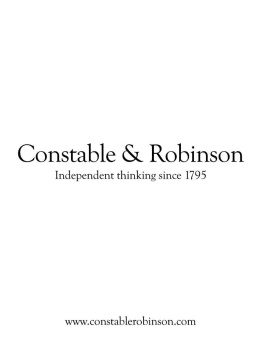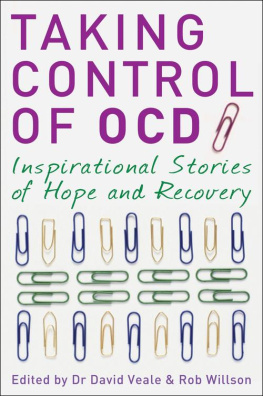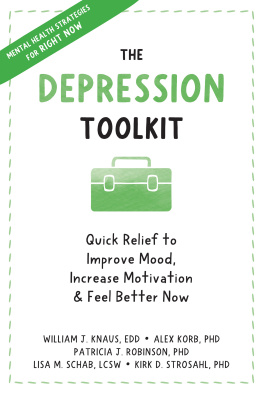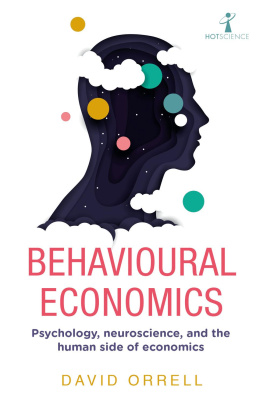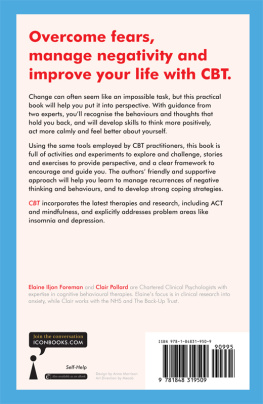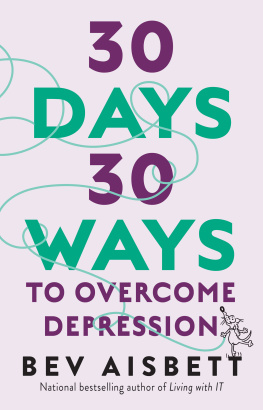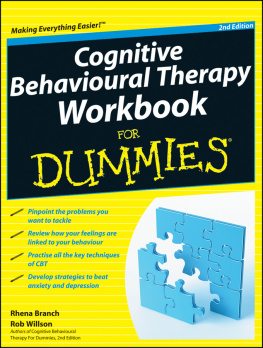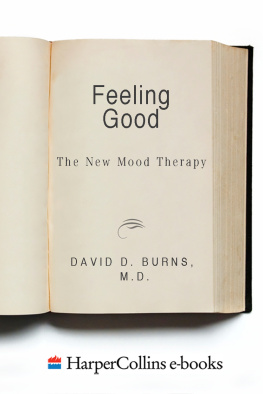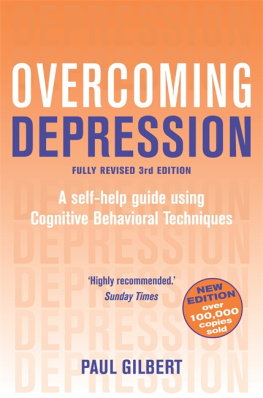David Veale - Manage Your Mood--How to Use Behavioural Activation Techniques to Overcome Depression
Here you can read online David Veale - Manage Your Mood--How to Use Behavioural Activation Techniques to Overcome Depression full text of the book (entire story) in english for free. Download pdf and epub, get meaning, cover and reviews about this ebook. year: 2015, publisher: Little, Brown Book Group, genre: Religion. Description of the work, (preface) as well as reviews are available. Best literature library LitArk.com created for fans of good reading and offers a wide selection of genres:
Romance novel
Science fiction
Adventure
Detective
Science
History
Home and family
Prose
Art
Politics
Computer
Non-fiction
Religion
Business
Children
Humor
Choose a favorite category and find really read worthwhile books. Enjoy immersion in the world of imagination, feel the emotions of the characters or learn something new for yourself, make an fascinating discovery.

- Book:Manage Your Mood--How to Use Behavioural Activation Techniques to Overcome Depression
- Author:
- Publisher:Little, Brown Book Group
- Genre:
- Year:2015
- Rating:3 / 5
- Favourites:Add to favourites
- Your mark:
- 60
- 1
- 2
- 3
- 4
- 5
Manage Your Mood--How to Use Behavioural Activation Techniques to Overcome Depression: summary, description and annotation
We offer to read an annotation, description, summary or preface (depends on what the author of the book "Manage Your Mood--How to Use Behavioural Activation Techniques to Overcome Depression" wrote himself). If you haven't found the necessary information about the book — write in the comments, we will try to find it.
David Veale: author's other books
Who wrote Manage Your Mood--How to Use Behavioural Activation Techniques to Overcome Depression? Find out the surname, the name of the author of the book and a list of all author's works by series.
Manage Your Mood--How to Use Behavioural Activation Techniques to Overcome Depression — read online for free the complete book (whole text) full work
Below is the text of the book, divided by pages. System saving the place of the last page read, allows you to conveniently read the book "Manage Your Mood--How to Use Behavioural Activation Techniques to Overcome Depression" online for free, without having to search again every time where you left off. Put a bookmark, and you can go to the page where you finished reading at any time.
Font size:
Interval:
Bookmark:
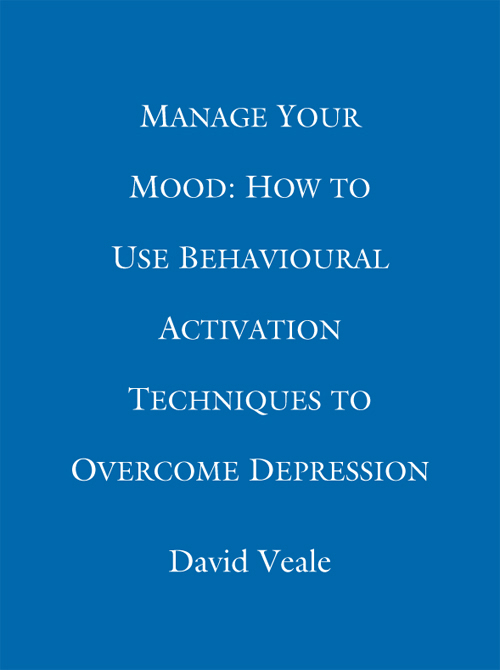
Published by Robinson
ISBN: 978-1-47213-770-8
Copyright 2007 David Veale and Rob Willson
The moral right of the author has been asserted.
Your Fitness Personality Profile () copyright 2005, James Gavin PhD and taken from Lifestyle Fitness Coaching, Human Kinetics Europe Ltd, 2005.
All rights reserved. No part of this publication may be reproduced, stored in a retrieval system, or transmitted, in any form or by any means, without the prior permission in writing of the publisher. The publisher is not responsible for websites (or their content) that are not owned by the publisher.
The publisher is not responsible for websites (or their content) that are not owned by the publisher.
Robinson
Little, Brown Book Group
Carmelite House
50 Victoria Embankment
London EC4Y 0DZ
www.littlebrown.co.uk
www.hachette.co.uk
D AVID V EALE , FRCPsych, MD, BSc, MPhil, Dip CACP is a consultant psychiatrist in Cognitive Behavior Therapy at the South London and Maudsley NHS Foundation Trust and the Priory Hospital, North London. He is an Honorary Senior Lecturer at the Institute of Psychiatry, Kings College London. He is an accredited cognitive behavior therapist and President of the British Association of Behavioural and Cognitive Psychotherapies 20068. He has about 50 publications to his name, accessible through his website www.veale.co.uk. He has been helping people with depression and anxiety disorders for more than 15 years.
R OB W ILLSON , BSc, MSc, Dip SBHS is a cognitive behavior therapist in private practice. He also works as a tutor at Goldsmiths College, University of London. He holds an honours degree in Psychology, an MSc in Rational Emotive Behaviour Therapy, and a Postgraduate Diploma in Social and Behavioural Health Studies. He has been involved in treating people with depression and anxiety for the past 12 years.
David Veale and Rob Willson are authors of Overcoming Obsessive Compulsive Disorder, also published by Robinson.
3-part self-help courses
Overcoming Anxiety Self-Help Course
Overcoming Bulimia Nervosa and Binge-Eating Self-Help Course
Overcoming Low Self-Esteem Self-Help Course
Overcoming Panic and Agoraphobia Self-Help Course
Overcoming Social Anxiety and Shyness Self-Help Course
Single-volume books
Overcoming Anger and Irritability
Overcoming Anorexia Nervosa
Overcoming Anxiety
Bulimia Nervosa and Binge-Eating
Overcoming Childhood Trauma
Overcoming Chronic Fatigue
Overcoming Chronic Pain
Overcoming Compulsive Gambling
Overcoming Depression
Overcoming Insomnia and Sleep Problems
Overcoming Low Self-Esteem
Overcoming Mood Swings
Overcoming Obsessive Compulsive Disorder
Overcoming Panic
Overcoming Paranoid and Suspicious Thoughts
Overcoming Problem Drinking
Overcoming Relationship Problems
Overcoming Sexual Problems
Overcoming Social Anxiety and Shyness
Overcoming Traumatic Stress
Overcoming Weight Problems
Overcoming Your Childs Fears and Worries
Overcoming Your Smoking Habit
If you are using this book with your client you should be aware that it is based on Behavioral Activation (BA) which is part of the family of Behavioral and Cognitive Psychotherapies and derived from the treatment manual, Depression in Context: Strategies for Guided Action by Martell et al (2001) (see .) There are differences between the standard activity scheduling of cognitive behavior therapy (CBT) and that of BA. BA is rooted in a contextual functional analysis of activities that are being avoided, or that have the function of avoidance (e.g. ruminating). This information then guides the choices in the activity scheduling. The aim is to help people develop a pattern of approach behaviors rather than avoidance. We have added elements of Acceptance and Commitment Therapy (ACT) by also encouraging activities that are in keeping with ones valued directions in life. The distinctive feature of BA, ACT and newer approaches in CBT is the process of thinking (e.g. rumination, worry, self-attacking) rather than trying to change the content of a persons thoughts. Thought records and identifying schemas and assumptions are therefore not used unless, for example, it is to identify and determine the helpfulness of ones assumptions about ruminating or self-attacking. This book can be used in guided self-help for stepped care for mild to moderate depression, which in the future we hope to evaluate.
David Veale and Rob Willson
Depression is a very common problem in the world today and the number of reported cases is rising. It is estimated that 1 in 4 women and 1 in 7 men will have an episode of depression at some point in their lives, with many episodes beginning in early childhood and adolescence. Research has shown that in some communities, particularly the impoverished, depression can be even more widespread.
One of the difficulties with understanding depression is that it can vary depending upon the individual. Some people experience high levels of anxiety and a sense of dread; others experience elevated anger, frustration and irritability. Some eat more while others eat less. Most people suffering from depression have difficulty sleeping, but again, this can vary enormously from case to case. Despite these variations there are commonalities. For many, depression is seen as a state of exhaustion you can feel physically, mentally and socially exhausted. This exhaustion can drain away positive feelings and interest in others and your environment. The combination of feelings of dread and fatigue, plus a negative outlook can make you want to hide away.
Over the centuries there have been many treatments for depression. More recent treatments include medications and specific psychological interventions. It is well known that depressed peoples negative thinking and predictions about others and their environment make them more likely to give up and thus spiral downwards into depression. Research was conducted to explore whether helping people directly to change their thinking, behavior and level of activities could be helpful. The answer was it definitely could. For instance, regular exercise can really help to combat depression. By gradually increasing your level of activity, focusing on small but important steps, you can start to reduce the effects of depression.
David Veale and Rob Willson have written Manage Your Mood to share with you some of the ways you can understand your thinking style and reorganize your daily routines and activities to help overcome your depression. By doing this you can start to take control of your life rather than battling on as before, simply keeping going, or just putting on a brave face.
Many of the ideas outlined in Manage Your Mood are derived from what are called behavioral approaches to problems. This works on the basic idea that in order for us to learn new tasks or overcome difficulties and anxieties skilful action is required, for example, if we are anxious about learning to drive, the best way to develop our skill and confidence is to get in a car and practise with an instructor. Think of how many difficulties you have overcome in life by actually going out and tackling your problem even when anxious!
When it comes to depression, skilful action means:
- Recognizing what was happening in your life that triggered depression. Sometimes it can be a life event such as the break-up of a relationship, or a combination of difficulties that just seemed to happen simultaneously. Some degree of depression may be a natural way we deal with things when we feel over loaded.
Font size:
Interval:
Bookmark:
Similar books «Manage Your Mood--How to Use Behavioural Activation Techniques to Overcome Depression»
Look at similar books to Manage Your Mood--How to Use Behavioural Activation Techniques to Overcome Depression. We have selected literature similar in name and meaning in the hope of providing readers with more options to find new, interesting, not yet read works.
Discussion, reviews of the book Manage Your Mood--How to Use Behavioural Activation Techniques to Overcome Depression and just readers' own opinions. Leave your comments, write what you think about the work, its meaning or the main characters. Specify what exactly you liked and what you didn't like, and why you think so.

